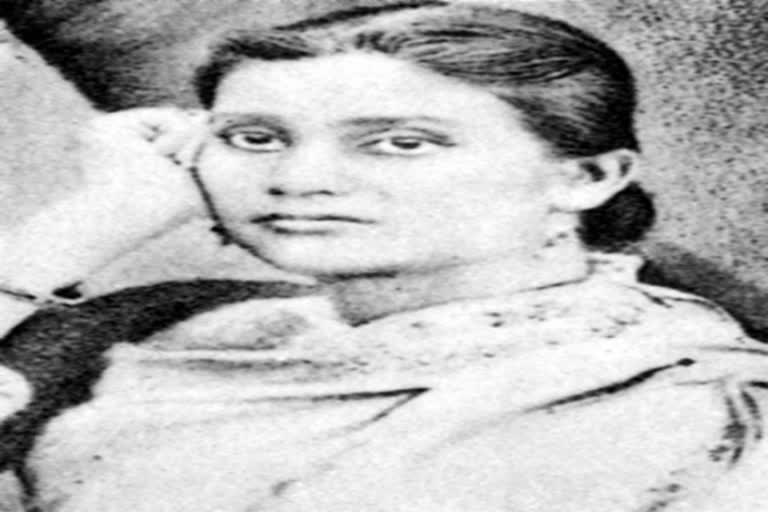Kolkata: Tributes poured in for Kadambini Ganguly, one of Indias first two women doctors on Sunday, her 160th birth anniversary. Along with Anandi Joshi, Ganguly became the first woman in colonial India to study medicine and earn a degree in 1886. While Joshi studied at Womans Medical College of Pennsylvania in the US, Ganguly pursued western medicine at Calcutta Medical College (CMC).
Born Kadimbini Bose in Bhagalpur, she was the daughter of well-known Brahmo Samaj reformer Braja Kishore Basu and was deeply influenced by the ongoing Bengal renaissance. She fought a long battle to be admitted to the Calcutta Medical College before qualifying as a practicing doctor, after becoming along with Chandramukhi Basu, one of Calcutta Universitys first women graduates.
Among others, Google Doodle honoured the countries, first woman doctor, with a special graphic on her. The doodle, a portrait of Ganguly with the image of the main building of Calcutta Medical College, now officially called the Kolkata Medical College and Hospital in the background, has been designed by Bengaluru-based artist Oddrija, and it was widely shared across the country.
Politicians and common people from all walks of life hailed Ganguly as a champion of womens rights in India. After her marriage with Brahmo reformer Dwarkanath Ganguly, the couple battled CMCs prohibition on women studying there, and Kadambini joined the medical college on June 23, 1883 despite strong criticism from the colonial society.
Read: PM Modi pays tribute to Syama Prasad Mookerjee on his 120th birth anniversary
She was awarded the Graduate of Medical College of Bengal (GMCB) degree in 1886, which even attracted the attention of Florence Nightingale who enquired about Ganguly from a friend in a letter in 1888. Ganguly later studied in Britain.
A champion of womens rights, Ganguly was among the six members of the first all-women delegation to the 1889 Indian National Congress. Among other movements, Kadimbini Devi as she was popularly called, worked to better the working conditions of female coal miners in the Eastern India.
When Lord Curzon announced the partition of Bengal in 1906, Kadambini Devi organized the Womens Conference in Calcutta to protest the plan. She also supported the Satyagraha movement and worked to supports families of imprisoned political workers.
Well known as a medical practitioner, she is reputed to have never turned down a call to treat or visit an ailing person while practicing medicine in Kolkata till her death in 1923.
Sharing her photograph, Congress tweeted: "Today we honour Kadambini Ganguly for inspiring generation of Indians to aspire for greatness. She was not only one of the first female graduates from India but also among the first women to practice western medicine in all of South Asia."
"Remembering #KadambiniGanguly ji on her birth anniversary. In a male-dominated society, Kadambini Ganguly fought all restrictions & prejudices to study medicine. She actively campaigned for the emancipation of women and their admission into academic institutions," National Commission for Women chairperson Rekha Sharma said in a Twitter post.
Politicians cutting across party lines paid tributes to Ganguly on the occasion. Rajasthan Chief Minister Ashok Gehlot tweeted: "Tributes to #KadambiniGanguly, one of the first two female physicians from India on her birth anniversary. She studied medicine in 1883, trained in Scotland & established medical practice in India. Her contribution to women emancipation shall always be remembered."
"Pay my humble tribute to #KadambiniGanguly ... Her struggle and fight in true sense, inspires Indian and Bengali women," West Bengal BJP chief Dilip Ghosh said in a Twitter post.
PTI



